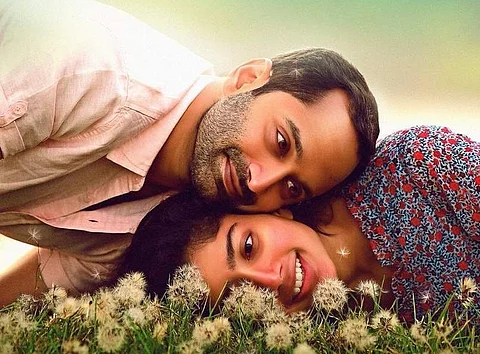Athiran Review: Immersive, emotionally rewarding psychological thriller
Rating:(4 / 5)
Athiran opens with the aftermath of three murders witnessed by a woman in the year 1967. Cut to five years later, a doctor (Fahadh Faasil) arrives from Thiruvananthapuram to investigate some unsettling occurrences in a psychiatric facility. One of its residents may or may not have been involved in these murders.
Director: Vivek
Cast: Fahadh Faasil, Sai Pallavi, Atul Kulkarni, Lena
The head of the facility (Atul Kulkarni) and his assistant (Lena) don't take kindly to the doctor's unwelcome intrusion. They seem to have something to hide, which Fahadh is determined to find out. He is informed that there are currently five patients being treated in the place. But he learns about a sixth -- an autistic girl named Nithya (Sai Pallavi), whose mystery he is eager to solve. Why is Nithya in the state she is now? What happened to Nithya's father (Renji Panicker)? Where is the 7th patient the doctor had interacted with earlier? What are the missing pieces of an old photograph trying to say? It's these questions the second half gives answers to.
Each resident of the asylum is distinct from the other. There is Sudev Nair, who believes that Nithya is his girl. There is an MF Hussain-style painter who paints events that are about to happen. There is a creepy Leona Lishoy walking around in a nun's attire. There is a professor (Vijay Menon) who is looking for the meaning of an elusive German word. There is Surabhi Lakshmi as Vadakkedath Kamala Lakshmi, the funniest of them all. The emotionally distant Nithya, on the other hand, takes some time to warm up to. She utters only two or three words in the entire film. A performance driven entirely by body language and mannerisms, it is easily Sai Pallavi's career-best performance. Despite the nature of the subject, this is not a film devoid of whistle-worthy action moments. Both Fahadh and Sai Pallavi get a chance to show off their quick moves, especially in the finale.
Two disparate worlds exist in Athiran and they eventually come together in a way one doesn't see coming. The asylum is a Gothic mansion, situated on a misty high-range area. The western influence is seen in the costumes too. When Fahadh makes his entry wearing a long coat and hat, he looks like a detective straight out of an Agatha Christie mystery novel. The same goes for Atul and Lena. The latter's interactions with the young doctor are straight out of film noir: she is a classic femme fatale. When Nithya is introduced, we are taken to a different world -- a world featuring thampurans and kovilakams. It's a world filled with treachery, envy, and deceit. It's the world where the aforementioned murders took place. In spite of their differences, both worlds share a palpable coldness.
The production values are on par with some of the best in international cinema. Debutant Vivek uses every cinematic tool at his disposal to conjure up an immersive nightmarish atmosphere. He employs claustrophobic close-ups, dolly zooms, aerial and revolving shots to heighten the tension. The film traverses an environment previously introduced to audiences through films such as Thalavattam, Ulladakkam, and Manichithrathaazhu. It also draws inspiration from classic works of literature like H.G Wells' The Island of Dr. Moreau, Robert Louis Stevenson's The Strange Case of Dr. Jekyll and Mr. Hyde, and Mary Shelley's Frankenstein. This is a place completely shut off from the rest of the world. The only characters in the film are the ones that reside at the asylum. And since it is set in the 70s -- when smartphones didn't exist -- it's easy to overlook any logical flaw that immediately pops in your head.
Like last year's Varathan, Athiran sees Fahadh taking on a more mainstream film that is both thrilling and emotionally rewarding. For a film about psychologically-affected individuals, it never resorts to melodrama to invoke emotions. It knows when and where to crack jokes and a welcome sense of self-awareness that is rarely found in other Indian films belonging to this genre.

